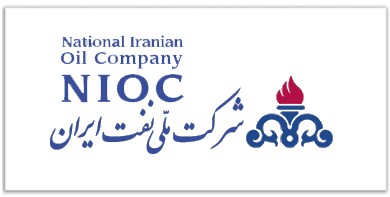
Iran Says Oil, Gas Projects Unaffected by Trump Threat

Gholamreza Manouchehri, deputy head of the National Iranian Oil Co., told IRNA on Saturday that it is business as usual for Iran and foreign companies in oil and gas development projects.
"US government's pressure and statements have not affected the cooperation of international companies with Iran and everything is underway as usual," the official said.
In a speech on Friday, Trump ramped up his hostile rhetoric against Iran and threatened to unilaterally pull out of the nuclear accord if US Congress fails to impose new sanctions against Tehran within 60 days.
The prospect of new restrictions and fear of being punished for doing business with Iran could dissuade international companies from pursuing attractive opportunities in a market that opened up to foreign investment just this past year.
Manouchehri asserted that a $5-billion deal with France's Total to develop an offshore gas project, Iran's biggest energy deal yet after last year's lifting of sanctions, is and will continue to remain out of harm's way.
"Total is completely focused on developing South Pars Gas Field's Phase 11…we haven't felt the pinch [of Trump's speech] in the gas deal," NIOC's Manouchehri was quoted as saying.
In a phone call on Friday, French President Emanuel Macron told President Hassan Rouhani that his country, one of the signatories of the Joint Comprehensive Plan of Action, will stand by the pact, a statement that bodes well for growing Tehran-Paris ties in the oil, gas, petrochemical and automotive industries.
Total finalized a deal in July to develop Phase 11 of South Pars, the world's largest gas field in the Persian Gulf. The French company will collaborate with China National Petroleum Corp and Iran’s state-owned firm Petropars to produce 2 billion cubic feet, or 56 million cubic meters per day of natural gas from Phase 11 of the joint gas field.
Iran's resurgence in the global crude market surprised most observers as the country was quick to stabilize production at the pre-sanctions level of around 4 million barrels per day. The country hopes to attract billions of dollars to develop its massive hydrocarbon resources and shore up crude export revenues, the lifeblood of Iran's economy for decades.
However, possible US sanctions could disrupt Iranian oil shipments of around 2.5 million barrels a day to European and Asian customers, potentially creating a void that could be filled by additional supplies from rival producer Saudi Arabia as well as emerging US shale producers.
Under the sanctions, Iran's oil output was slashed by nearly 40% as a handful of buyers shipped in about 1 million bpd of oil from the country under special waivers.


Trump weighs using $2 billion in CHIPS Act funding for critical minerals

Codelco cuts 2025 copper forecast after El Teniente mine collapse

Electra converts debt, launches $30M raise to jumpstart stalled cobalt refinery

Barrick’s Reko Diq in line for $410M ADB backing

Abcourt readies Sleeping Giant mill to pour first gold since 2014

Nevada army depot to serve as base for first US strategic minerals stockpile

SQM boosts lithium supply plans as prices flick higher

Viridis unveils 200Mt initial reserve for Brazil rare earth project

Tailings could meet much of US critical mineral demand – study

Kyrgyzstan kicks off underground gold mining at Kumtor

Kyrgyzstan kicks off underground gold mining at Kumtor

KoBold Metals granted lithium exploration rights in Congo

Freeport Indonesia to wrap up Gresik plant repairs by early September

Energy Fuels soars on Vulcan Elements partnership

Northern Dynasty sticks to proposal in battle to lift Pebble mine veto

Giustra-backed mining firm teams up with informal miners in Colombia

Critical Metals signs agreement to supply rare earth to US government-funded facility

China extends rare earth controls to imported material

Galan Lithium proceeds with $13M financing for Argentina project

Kyrgyzstan kicks off underground gold mining at Kumtor

Freeport Indonesia to wrap up Gresik plant repairs by early September

Energy Fuels soars on Vulcan Elements partnership

Northern Dynasty sticks to proposal in battle to lift Pebble mine veto

Giustra-backed mining firm teams up with informal miners in Colombia

Critical Metals signs agreement to supply rare earth to US government-funded facility

China extends rare earth controls to imported material

Galan Lithium proceeds with $13M financing for Argentina project

Silver price touches $39 as market weighs rate cut outlook

















